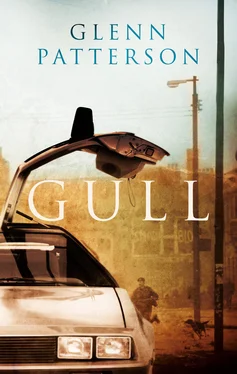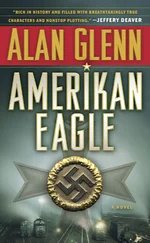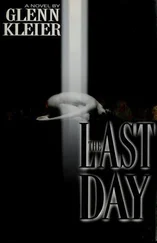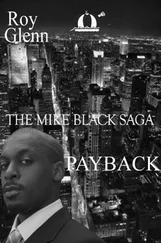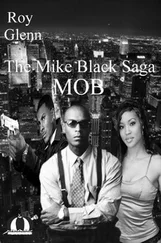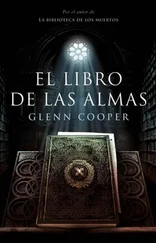Jennings shoved a shirt into his arms. ‘Get dressed.’
‘Not until you tell me what is going on.’
Jennings drew a long envelope from his overcoat pocket and held it out towards him.
Randall took a step back. ‘What’s in it?’
‘Bearer bonds.’ He held the envelope out further. ‘They aren’t going to blow up in your face, unless you were to try cashing them yourself, which I don’t recommend.’
‘But where are they from?’
‘People who would rather not see the factory close.’
‘Prior? Thatcher?’
Jennings rolled his eyes. ‘I am surprised you could even ask.’
‘I thought you told me once you only served whoever was in power.’
‘Until whoever is in power starts to act in a way that is entirely contrary to logic and justice. There is a difference between neutrality and rank stupidity.’
Randall was feeling suddenly light-headed. That they were standing here on his landing, him only half dressed, discussing matters of state and high finance.
‘Your Mr DeLorean is very hard man to defend sometimes,’ Jennings said, ‘but I am far from alone in thinking that factory down there is its own best argument.’
Long afterwards it was the ‘far from alone’ that stuck in Randall’s mind, the threat beneath its surface reassurance. Jennings drew from his pocket a second envelope.
‘You will find a ticket in there for the six-thirty New York flight from Shannon Airport.’
‘But, that’s…’
‘One hundred and seventy-five miles, although you might as well add on another hundred for the state of the roads on the other side of the border… If you are lucky you will do it in six hours, although the flight, once you are on it, is at least direct.’
Still something in Randall resisted. ‘Why like this? Why not just wire it?’
‘Because wires inevitably have points of departure as well as arrival that can be traced.’
He looked Randall straight in the eye a moment longer then made to withdraw his hand. ‘Or maybe you would rather I just ripped the tickets up.’
Randall reached out and grabbed them and the envelope with the bonds.
‘I will put a call through to the police on both sides of the border.’ The tail end of the sentence disappeared with Jennings into Randall’s room. He returned with two ties, the least worst of which, a tweed-knit ( that tweed-knit, bought a DeLorean-Motor-Company lifetime ago en route to Detroit), he handed to Randall. ‘I’ll pass on the registration number and ask them to speed you through the checkpoints.’
Randall was turning round, turning round, scouring the floor.
‘Shoes, is it?’ asked Jennings. ‘You left them on the bathroom floor.’
He got his shirt on, his tweed-knit tie, his jacket, his shoes, finally. He found his watch, his passport and a carry-on into which he threw a couple of things at random. The second envelope, with the tickets, went in there, the first went, uncomfortably to begin with, into his breast pocket.
He had worked his way in the course of this down into the vestibule again. Jennings went ahead of him and opened the front door. He stood aside, holding the handle.
Randall was not quite sure what to. He went to hug Jennings, who stayed him with a raised hand.
‘Don’t,’ he said. ‘Just go.’
So Randall did.
At the last moment he detoured into the factory again, lights still on in the canteen from which quarter singing came, not raucous, or confused, a single voice, too far off for him to catch the burden. He wanted to go and tell them not to worry, but there wasn’t time for that and for what he had come here to do.
Five minutes, that took. He would make it up between here and Shannon, between here and Portadown. Out the gates he went for the third time that night and that really was him away.
Liz heard the rumour as soon as she walked into the assembly shop in the morning that Randall done a runner during the night.
TC said he wasn’t the least bit surprised.
Anto cupped a hand to his ear. ‘Listen, you can hear the other rats leaving too.’
Liz said nothing at all, not even (an effort of will) to herself, but walked to her locker, where the first thing she saw was a ragged edge of paper protruding from the bottom of the door. She turned the lock and the page — torn from a notebook — floated to the ground, blank side up. She hesitated before crouching and turning it over. This can all still work out , it said. Believe with me. He had signed it. E.R.
Like the Queen, was all she could think. She stayed there a few moments, sitting back on her heels, the page a ball in her fist clasped to her forehead, then she pushed herself forward and up with her toes, locked the metal door and carried on out to the assembly shop again.
They went about their tasks in silence, each keeping to her, or his, own part of the factory floor, choosing not to meet one another’s eyes. Liz didn’t know about the others but she was torn the whole time between finishing the car (she had been working on the same one for the past eleven days) and putting her spanner through its windscreen.
She made it as far as lunchtime. ‘I can’t wait around like this,’ she said, and started there and then taking off her overalls.
Anto and TC laid down their tools too.
‘What’ll you do now?’ she asked them.
Anto shrugged. ‘Go to the canteen, join the sit-in.’
‘While there’s life…’ said TC.
‘Yeah,’ said Liz, while there’s life.
She put her arms around them both.
Back at the house she picked up the first of the day’s notes, left by Robert this morning on the dressing table. ‘I am still waiting for a proper explanation.’
As to why she had not called last night to say she would be late, as to where she had been all that time.
He had driven up to the factory looking for her an hour before she finally arrived home and of course she was nowhere to be seen.
He came into the kitchen when he heard her at the back door, closing the living room door behind him, letting her trap herself in a lie about a tricky carburettor and no change for the payphone.
‘Is it that fella Anto?’ he asked.
‘Oh, for God sake, Robert.’
‘Don’t you for God sake me. There’s someone, there’s something.’
She had allowed herself to be turned around by him, her back to the sink. His face was in the space where hers should have been, her own drawn back so far she thought her neck would snap. His eyes were wild, but it was fear she saw in them, not anger. When it got to the point there was no violence. He reminded her, heartbreakingly, of the boys, all mouth and trousers.
And he was half right. There was something, but though she had kissed another man not half an hour before there was no one. She wasn’t even sure she could explain it to herself, not last night, not now.
One day, maybe.
*
She looked at the figures on the clock radio: 14:59. She slid the button from auto to on as all but the first digit changed and the pips sounded for three o’clock.
She heard the news out then reached under the bed for the suitcase.
It was now or never.
*
Randall didn’t know what set him off — exhaustion, maybe — but all of a sudden, sitting on the lip of that enormous desk on the thirty-fifth floor, he began to shake with silent laughter.
He picked up the envelope with its pink-tinged edge and for a moment he thought he should put it back in his pocket, leave here and go find Tamsin — Pattie too, if that was what it took, and whoever Pattie was sharing her life with now — and just disappear together. How great could the reach of Jennings’s associates be, after all? But even as he was asking the question he knew he could not risk his daughter’s happiness or safety to find out and knew too that without her he was not disappearing anywhere. He searched in the little dish at the base of the bust of Abraham Lincoln for a thumbtack, turned with it in his hand, looking for a suitable spot.
Читать дальше
